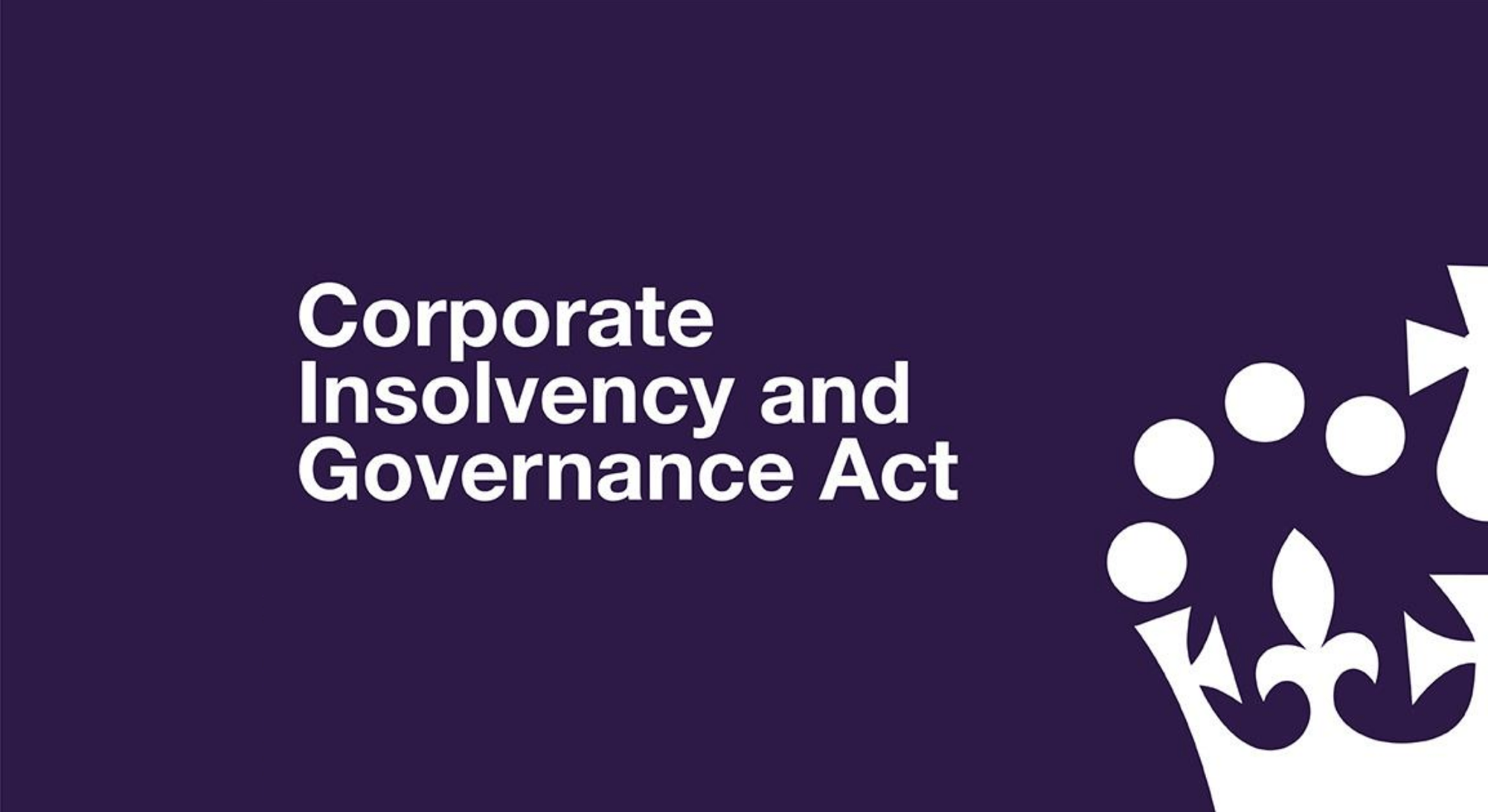The New Insolvency Act and its potential impact on Funders

The Corporate Insolvency and Governance Act (CIGA) 2020 has introduced new procedures and measures to seek to rescue companies in financial distress as a result of the COVID-19 pandemic and the resulting economic crisis.
We are going to look at the expected impact of CIGA on collections and payments of invoice and the likely impact of this on Funders.
Statutory Demands and Winding Up Petitions
Winding Up Petitions cannot be issued from 1st March to 30th September 2020 and neither can Statutory Demands which you are subsequently looking to issue a Petition for. This works retrospectively, so any already issued cannot be enforced. This could be extended by the government if they think this is required.
There are two exceptions:
1. If the creditor can prove that COVID-19 had little or no impact
This can be businesses who have not been impacted by Covid-19, such as retail businesses that have remained trading, some construction businesses and possibly professional services firms that have not furloughed staff and have remained fully operational.
2. If the creditor can prove that the debtor would have been in the same situation without COVID-19
This one is a lot harder to prove and it is even uncertain how this even would be proved.
In short, we are going to have a period of time where this cannot be used as an effective mechanism to recover undisputed debts.
Likely impact:
We believe this will lead to an increase in legal action being taken as well as CCJs being obtained and subsequently enforced, as businesses will still need to get paid.
This will increase the cost of collections to businesses if adopted. Or businesses may choose to wait until 1st October, assuming there are no extensions to this temporary measure. A large increase of demands and petitions is expected in October and 1st October could be a very busy day on that front, if no extension has been agreed by then.
The impact will be significant as it will prevent businesses from recovering their debts which will no doubt impact on their own cashflow at a time when it will be under pressure anyway.
Points to consider for funders
Finance providers, and Invoice Finance Companies in particular will need to consider some points:
1. Collections are likely to slow as businesses try to rebuild. This will have a knock-on effect. Debtors will use the COVID-19 excuse not to pay, whether they have been impacted or not.
We would have liked to have seen rules around any business receiving government backed loans, such as CBILS or Bounce back loans, having to commit to paying suppliers on time. Unfortunately, this has not formed part of the new temporary rules.
Therefore, collections will slow as more businesses feel the squeeze, especially beyond Furlough and other support mechanisms, and the pressure on Cashflow will increase.
2. Alternative collection strategies will be required
Alternative collection strategies will need to be considered such as payment holidays, payment plans and future payment promises.
3. Previous metrics used for measuring business performance will need to be relaxed
All of these will impact Days Sales Outstanding and other metrics that IF Providers use to monitor Client performance. We would expect several clients to breach covenants and fall outside of the agreed parameters of their facility.
Analysing the risk of clients will become more difficult as will agreeing overpayments or increases in their pre-payment percentage.
4. Effective credit control of Funders’ clients will be more important than ever
Funders will need to know that everything that can be done to collect on payments will be done, and that Clients are in regular dialogue with all their main debtors.
Moratoriums
Directors of companies in distress can obtain a moratorium, initially for 20 business days, if they believe that this will help rescue the company. The initial period can be extended in a number of ways, with or without creditor consent.
What does this mean for Funders?
The key will be patience throughout the process, but also realising that collections continue. In fact, they will become more important than ever.
The Monitor does not need to tell you beforehand or seek your permission, but in reality, I would expect most Insolvency Practitioners to inform the charge holder of the process and the plan.
If Funders are not informed and find out by other means, or if they are not comfortable with the communication from the IP, or the potential plan, it is important that they have a full understanding of the Debtor Book and its realisable value under all scenarios.
They should appoint their own “Monitor” with regards to the Ledger to ensure they have control, or at least oversight, of this asset.
The Impact to Funders should be minimal. It is hard to know how popular this new process will be and how many will extend from 20 days to 40.
The impact could be worse if a lot of the Client’s debtors are in Moratoriums at any one time, as this will erode the collectable value of a Ledger, either temporarily or permanently dependent on how they exit it.
As this is a permanent change to the Law, we will all need to adapt to this.
How can we help?
Remember that we are the experts in this field and we are more than happy to help you with any issues you may have.
Feel free to contact us for a no obligation chat in total confidence, or arrange your Free Debtor Collateral Review to find out your Position.
Call us on 0845-6385256 or email info@credebt.co.uk


